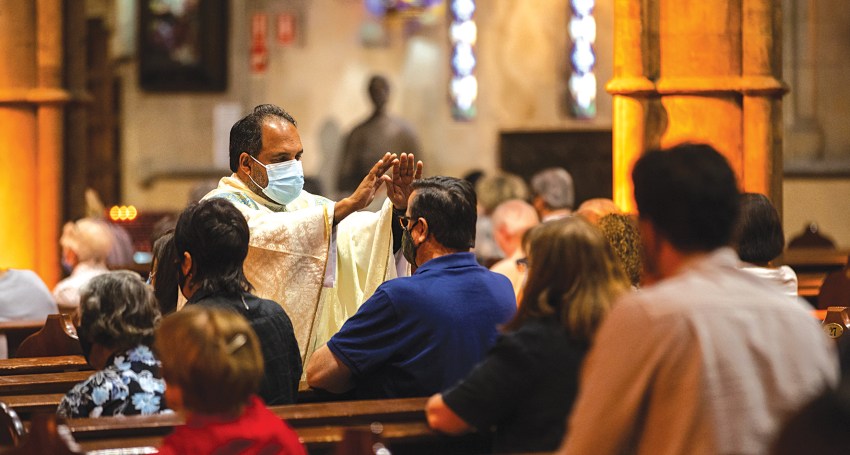Don’t wait until the last minute: Celebrating the Sacrament of the Sick
Opinion
The experience of sickness and suffering can make us feel anxious and alone. We need someone to be with us, to comfort us, to listen to us, to encourage us. This doesn’t apply only to the person enduring the pain or illness, but to those who love them and care for them who wonder, ‘What can I do? What should I do? Who can I turn to?’

Sometimes these questions confront us as we or someone we love is faced with the prospect of a serious operation or treatment. Sometimes they strike us when we are in the midst of deep distress or depression. Sometimes it is as we sit with someone we love who is nearing their death. Sometimes it is as the difficulty of coping with ongoing chronic pain overwhelms us and we wonder how we can cope. And sometimes it is as we endure the sheer frustration of the increasing limitations that come with ageing.
Advertisement
For all these situations the Church offers the grace and comfort of the Sacrament of the Sick. This beautiful ritual is NOT limited to the hours leading up to a person’s death, but is for the LIVING, and can be received over and over again during our lifetime.
There are several ways by which we can access this sacrament. The first is by checking the parish bulletin for a scheduled Mass of Healing. Most parishes celebrate such a Mass at least twice a year. During this, all those in need of healing have hands laid on them, are anointed with holy oil and have prayers prayed for them. Obviously, parishioners who participate in these Masses are well enough to be physically present in the church.
For the sick and suffering who cannot come to a parish Mass, the best way to arrange for the Sacrament of the Sick is to contact the parish office. Let them know that there is someone – either in their home, a nursing home, or hospital – who would like to celebrate the sacrament, and arrange for a time for the priest to visit them.
If a sick person goes to hospital unexpectedly, or even for a planned admission, then contact the Catholic chaplain via the hospital’s Spiritual Care Team for ongoing pastoral care. If a priest is required, they can assist in contacting him. If it is known in advance that surgery or significant treatment is coming up, then it is good to approach the parish priest prior to the event so that the relationship already existing within the parish community can continue instead of potentially meeting an unknown priest at a very difficult time. Of course, COVID has brought with it restricted access to hospitals and particular patients. Sometimes the priest we want will not be able to attend and we need to understand this.
Advertisement
Family members of a sick person need to be proactive in ensuring that the person they love is able to celebrate the sacrament when they are still well enough to participate fully in it. Don’t wait until the last minute before calling a priest. It is very stressful to be phoning from place to place when a person is near to death and not be able to find a priest. If someone has been celebrating the sacrament on a regular basis, then there is no need for this last minute anxiety or feelings of guilt that it was not celebrated just before death. The benefits of the sacrament do not ‘wear off’! If the person dies before the priest does come, do not worry. He will pray the prayers for those who have died and will commend them to God’s merciful love.
While the Sacrament of the Sick is for the living, the final sacrament for a Catholic is Holy Communion, known as Viaticum. This is the final food offered for the final journey (‘viaticum’ literally means ‘on the way with you’). How beautiful that Christ offers himself for this sacred meal – a fact highlighted by the words spoken as the dying person receives the host: ‘The Body of Christ. May the Lord Jesus Christ protect you and lead you to eternal life.’
Catholics have traditionally prayed ‘for a happy death’. The best way to ensure this is to make the most of the sacraments offered to us during our lives. Do not wait until the last minute!
Dr Jenny O’Brien is manager of the Office for Worship







Comments
Show comments Hide comments